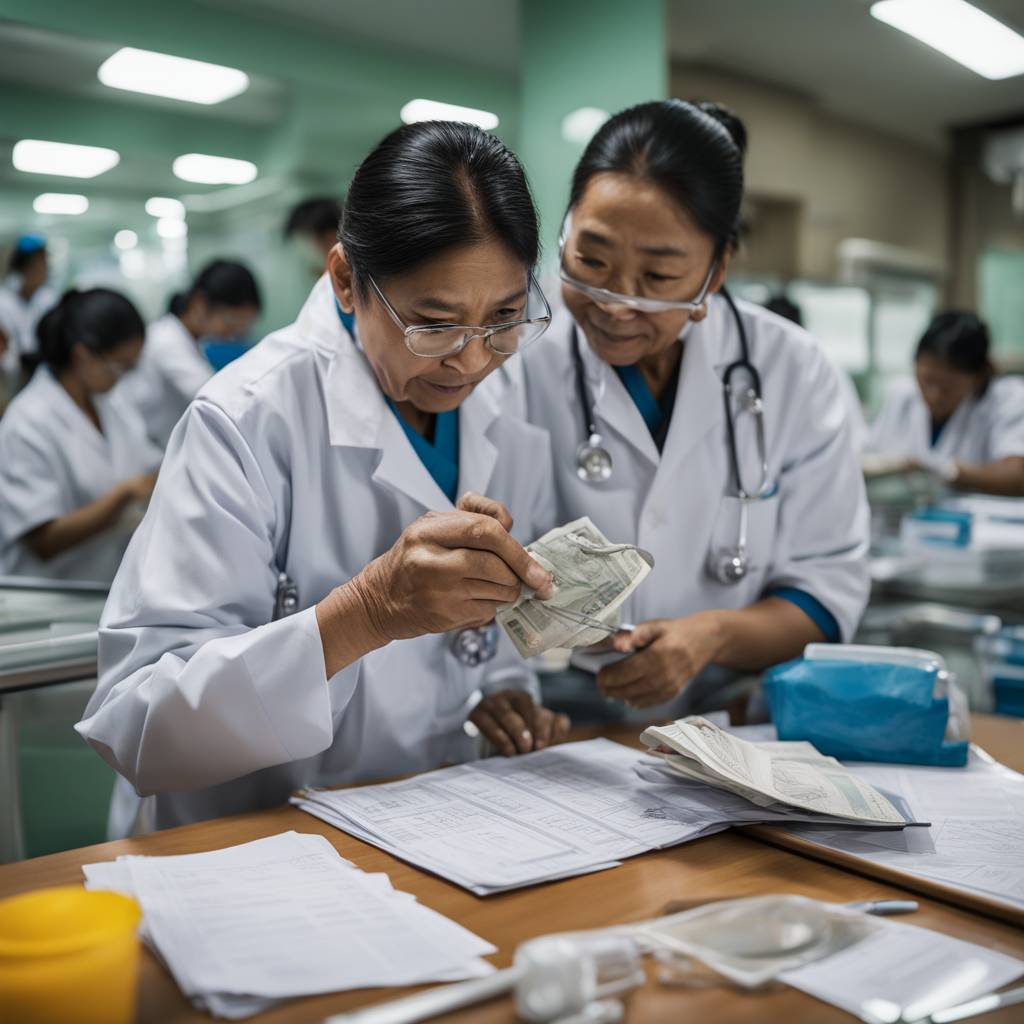In the Philippines, funding for public healthcare comes from various sources, including the Department of Health’s budget, local government allocations, social welfare programs, and out-of-pocket expenses from patients. Over half of hospitals in the country are privately run, while some government facilities are managed by localities or the DOH. Revenue from betting centers operated by the Philippine Charity Sweepstakes Office is also used to help pay hospital bills for those in need. The process of securing financial assistance can be challenging and time-consuming, as shown in the case of Mr. Lescano’s family, who had to navigate various offices to receive support.
Some public hospitals in the Philippines have Malasakit Centers, which facilitate the processing of applications for social assistance from different government agencies. In 2012, the government implemented sin taxes on products like cigarettes and alcohol to help finance the health department and PhilHealth. There is a push for electronic cigarettes or vapes to be included in these taxes in the future. While PhilHealth has faced criticism for delayed payments to private hospitals, efforts are being made to digitalize and streamline the claims processing system. Dr. Ona, a former health secretary, emphasizes the importance of digitization in improving efficiency, while Dr. Campued, a public health specialist, notes that electronic medical records are not yet standardized across hospitals, posing challenges to the processing system.
As part of a pilot program, PhilHealth is testing advance payments to healthcare providers for out-patient services under its Konsulta outpatient benefit package. Despite these challenges, there are ongoing efforts to improve the financing and delivery of healthcare services in the Philippines.
Efforts are being made to enhance the efficiency of PhilHealth and other funding mechanisms in the country. Digitalization is seen as a key component in streamlining the process of securing funding and making payments to healthcare providers. The inclusion of electronic cigarettes and vapes in sin taxes could potentially generate additional funds for healthcare. Although there are still challenges to overcome, such as delays in payments and inconsistencies in electronic medical records, progress is being made towards a more sustainable and accessible healthcare system in the Philippines.













